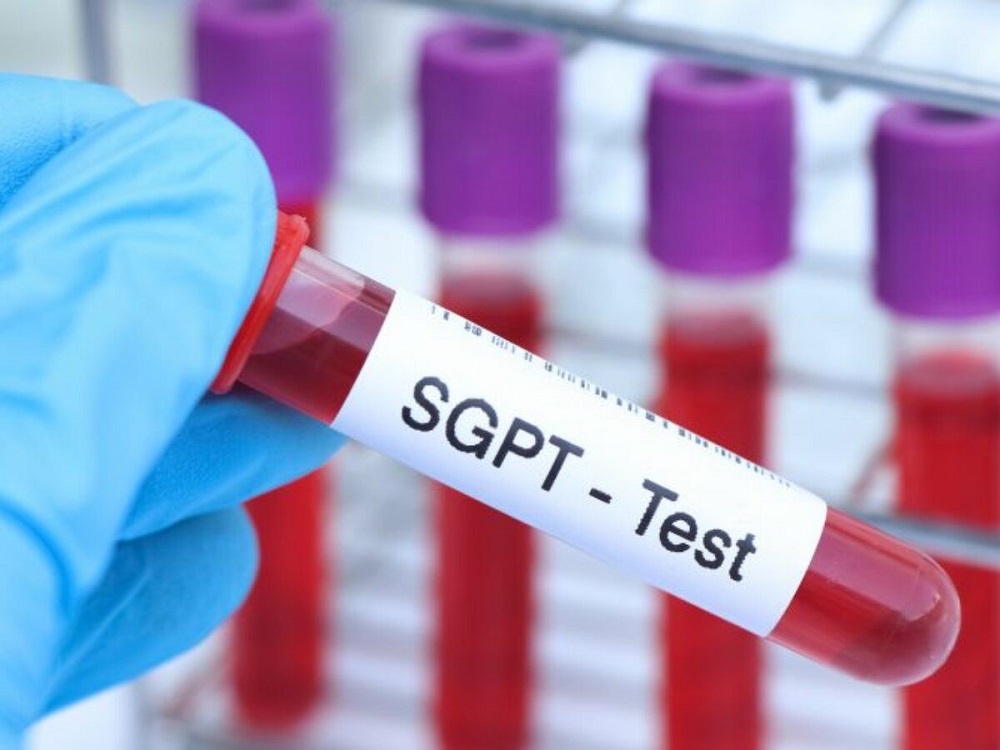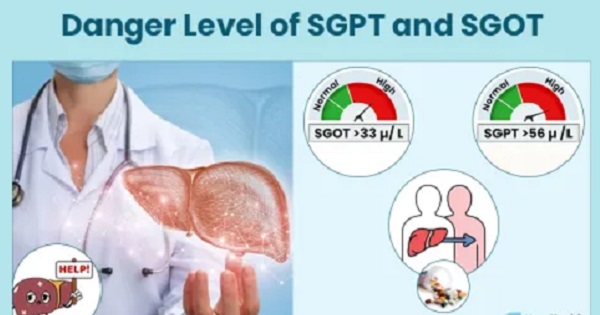SGPT Levels and Liver Health: What You Need to Know

In the current society where people are sensitive to their health, it is important to know the various aspects of your health. One of such important indicators is the SGPT level which has the paramount importance in determining a state of liver. This article takes a closer look at what SGPT levels mean, the SGPT test, and the relationship with the liver.
What is SGPT?
SGPT, also known as Serum Glutamic Pyruvic Transaminase, is an enzyme present mainly in the liver. This enzyme is involved in the breakdown of proteins and amino acids particularly in fetal tissue. When the liver is diseased or infected, SGPT is secreted into the blood stream to increase it, thus making it an essential indicator of liver condition.
Why is the SGPT Test Important?
The SGPT test is also commonly called the Liver enzymes test or the Alanine Aminotransferase (ALT) test and is a quantitative analysis of the SGPT in the blood. Raised values for SGPT are attained in cases of liver disorders or diseases; therefore, this test is critical in diagnosing liver ailments. This means that routine check-ups to determine SGPT levels can assist in the early identification of liver ailments and consequent management.
 When Should You Get an SGPT Test?
When Should You Get an SGPT Test?
There are several scenarios where an SGPT test is recommended:
- Routine Health Check-ups: The SGPT test is one of the common tests done during routine health check-ups to check the efficiency of the liver.
- Symptoms of Liver Disease: SGPT test may be prescribed for you in case you feel jaundiced or fatigued, have dark colored urine, or abdominal pain.
- Risk Factors: People with obesity, diabetes, heavy drinking, or family history of liver disease should pay attention to their SGPT levels and get tested more often.
- Monitoring Existing Conditions: For individuals who have liver diseases, or are taking medications that are hazardous to liver health, regular SGPT assessments would be beneficial.
Understanding SGPT Test Results
A normal SGPT test is expressed in units per litre (U/L). Normal SGPT levels remain between 7 and 56 U/L. However, these values may differ from lab to lab and may also depend on age, sex, or status of the person’s health.
High SGPT Levels
Elevated SGPT levels can indicate liver damage or inflammation. Common causes of high SGPT levels include:
- Hepatitis: Hepatitis type A, B and C viruses are known to induce liver inflammation and this would result in raised SGPT Levels.
- Fatty Liver Disease: Elevated SGPT levels are characteristic both to alcoholic and non-alcoholic liver diseases.
- Cirrhosis: Conditions such as cirrhosis of liver, obviously raise the levels of SGPT because the liver is damaged extensively.
- Medications: The drugs that are known to influence the liver and thereby increase the SGPT levels include statins, antibiotics and pain killers.
- Alcohol Consumption: Alcohol affects the liver by causing inflammation or necrosis of liver cells leading to high levels of SGPT.
- Obesity: Obesity is known to aggravate liver disorders that lead to an elevated SGPT rate, including fatty liver disease.
Low SGPT Levels
Low SGPT levels are not dangerous and are not a sign of an underlying condition or disease. But sometimes they may be observed in people with a healthy liver or in those with severe pathologies that affect the functioning of their liver.
How to Maintain Healthy SGPT Levels
Maintaining healthy SGPT levels is crucial for overall liver health. Here are some tips to keep your liver in good shape:
- Healthy Diet: Organic foods, vegetables, fruits, lean meat, whole-grain products are recommended to enhance liver functions. This means that one should not consume processed foods, sugary products or excess fats as this causes harm to the liver.
- Regular Exercise: Physical activity keeps one from having a ticket to being overweight and keeps away fatty liver disease.
- Limit Alcohol Intake: The use of alcohol beverages can be reduced or stopped to reduce or avoid high SGPT levels and liver damage.
- Avoid Toxins: Avoiding exposure to environmental toxins and chemicals is another way of sparing your liver from being injured.
- Medications: It is important to take all medications prescribed and not take any additional drugs including those for relieving pain as these products affect the liver.
- Regular Check-ups: Periodic check-ups, which will require such tests as liver function tests, will ensure the early identification of liver problems.
Conclusion
Understanding SGPT levels and their significance in liver health is essential for maintaining overall well-being. The SGPT test is a valuable tool for detecting liver damage and monitoring liver function. By maintaining a healthy lifestyle, including a balanced diet, regular exercise, and avoiding harmful substances, you can keep your SGPT levels within the normal range and support your liver health. Regular check-ups and timely medical intervention can also play a crucial role in preventing and managing liver diseases.
Knowing and being aware of your liver health will greatly help in keeping this important organ in its best shape to help you achieve longevity.



